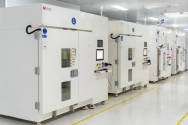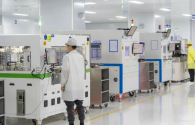Slightly tangential but Russia maintainers have been banned from contributing to the Linux kernel and have been removed from the maintainers list. There is also pressure to remove HUAWEI maintainers which would be a large blow but they’re not doing so at this time.
This is the official reason for the ban:

And this is the
key piece of info for me:
all of the Linux infrastructure and a lot of its maintainers are in the US and we can't ignore the requirements of US law.
They say Linux Foundation (although international by nature) is under US law. This is noteworthy and the first time I read it so clearly stated.
Because we know US law can be very
fluid, it can morph into anything at any time, this means that tomorrow they can ban Huawei, or even can ban all contributors from China. Of course we can't assume any a priori limit to what US lawmakers can do...definitely China will not, and for sure they will plan for the worst.
But software is not equipment!
Maybe China will set up a kind of China Linux Foundation with a (relatively small) group of developers that take patches from the different Chinese companies and merge them in the
Chinese fork of Linux, and at the same time keep this fork in sync with upstream. It is not an impossible task, actually every company already does this for their part: they fork Linux, add their stuff, and then (also months later) submit it back for merging (but the submitted patches are already in a mergeable state, i.e. the grunt work of syncing with upstream is already done).
China had to overcome far bigger roadblocks than this in the ongoing tech war with US.
The only way US has to prevent this, is to close the sources, but at that point the glorious Linux project would be practically dead, after more than 30 years of honorable career.



